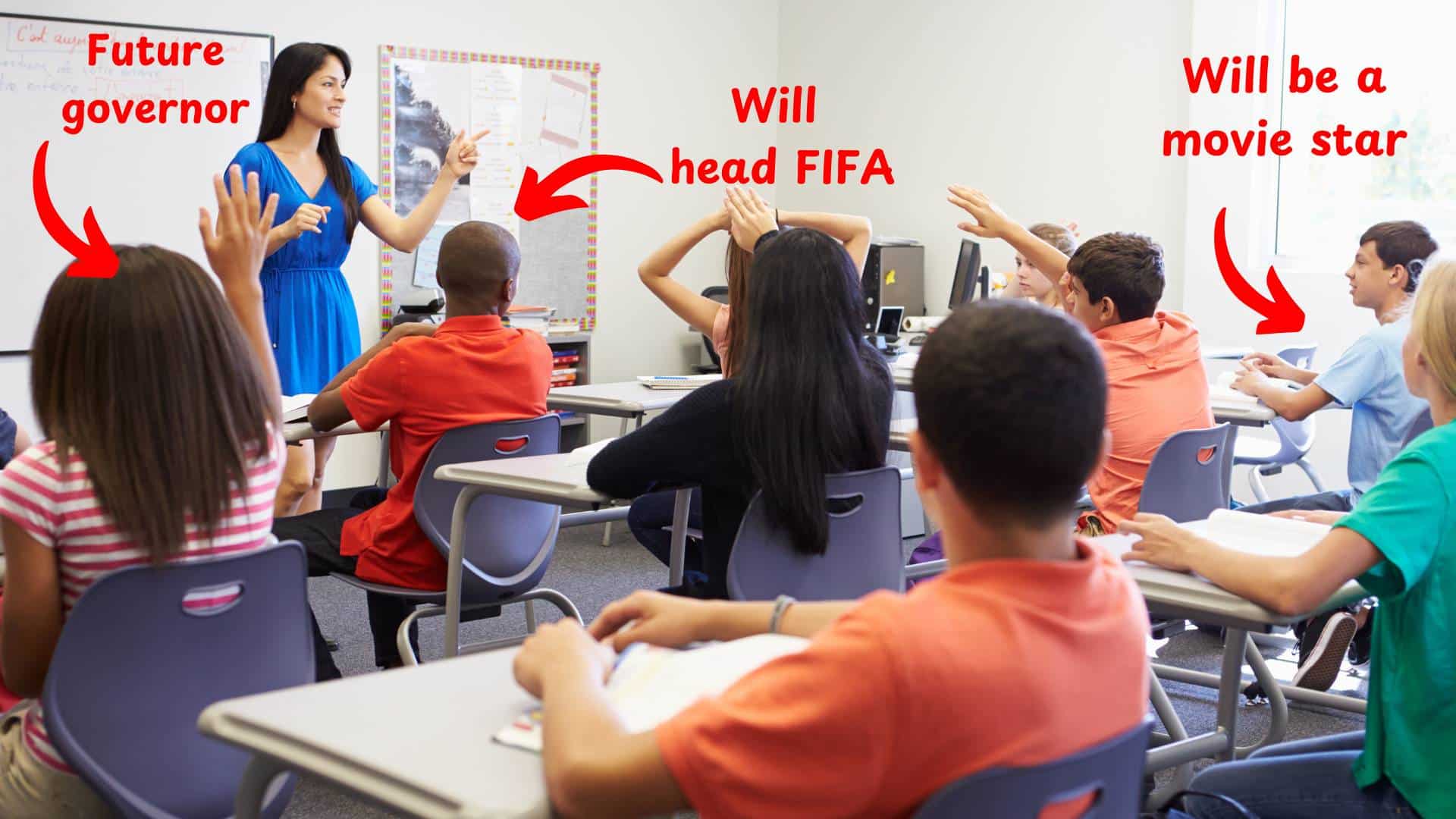Think you know no one of importance? Most important people were once nobodies.

A high school classroom of future leaders. (Illustration by News Decoder)
In News Decoder’s Top Tips, we share advice for young people from experts in journalism, media literacy and education. In this week’s Top Tip, News Decoder Educational News Director Marcy Burstiner explains why it is important to build personal networks.
You can find more of our learning resources here. And learn how you can incorporate our resources and services into your classroom or educational program or by forming a News Decoder Club in your school.
According to the documentary “We Are the World” about the recording of the star-studded song in 1985 that raised millions of dollars for food aid to Africa, organizer Lionel Ritchie reached so many top stars — from Bob Dylan to Willie Nelson — because his friend, producer Ken Kragen, traveled with a suitcase full of Rolodexes.
For anyone who grew up before the Internet, a Rolodex was a catalog of phone numbers and addresses of people you knew, kept on physical cards or in an actual address book.
Nowadays you keep this information in your contacts list on your phone or social media site. Regardless, as people rise in careers, these contacts become valuable.

An old fashioned Rolodex
As a journalist or lawyer or public relations person or politician, for example, the more contacts you have, the more effective you are. People are hired at times purely on the basis of their “Rolodex” or their network.
It is never too early to start compiling your own Rolodex.
Reach out to those around you.
See, successful people never reach their level of success on their own. They do so with the help of people all around them who have different skills and abilities and their own contacts. Journalists, for example, get their best stories from gathering great sources and they often do that by tapping people they know for people they know. That’s called networking.
People often get good jobs from people they know.
Now, if you are in high school or college or just starting out in your career you might think you know no one important. But that’s because you are using only one definition of “important” and you are thinking only in the present.
Consider that one of the greatest stories in journalism was Watergate — a series of articles in the United States by reporters Bob Woodward and Carl Berstein that resulted in the resignation of then-U.S. President Richard Nixon.
Their reporting relied on information given to them by a secret source known as “Deep Throat” who we now know to be Mark Felt, the then-deputy director of the Federal Bureau of Investigation (FBI).
But Woodward had first met Felt before he became a journalist. Woodward was a lieutenant in the navy, whose job was to deliver messages to important people. He met Felt by accident and cultivated him as a source.
The goofy kid morphs into a great leader.
Understand this: At one point Mark Felt was a nobody, just a kid from the U.S. state of Iowa, the son of a carpenter. If he was a friend of yours during high school you might have thought at the time that you knew nobody important.
So look around you now. The kids next to you in history class or who you play football with or video games against might end up in law school or politics. They might become doctors or environmental activists or chemical inspectors.
If you became social media friends with half the people you go to school with, you might find that in 10 years you have a network of acquaintances in many different fields of expertise.
And even if they don’t have the information you need, they have their own contacts — friends, family, co-workers.
In journalism, when you first start out on a story you start with only an idea. You have little to no information to go on. But if you have a network of people in different places and occupations you have people to point you in the right direction.
So don’t bully or ignore that kid who sits next to you now. She might end up governor of your state, or head of an important NGO. She might be someone you need help from in 10 years.
Start cultivating your network now.
Three questions to consider:
1. What do people mean by a “Rolodex”?
2. Why is a personal network important in careers?
3. In what job or career do you see yourself in 10 years?

Marcy Burstiner is the educational news director for News Decoder. She is a graduate of the Columbia Journalism School and professor emeritus of journalism and mass communication at the California Polytechnic University, Humboldt in California. She is the author of the book "Investigative Reporting: From premise to publication."
💡 More Tips Like This
This story is part of News Decoder’s open access learning resources.
Whether you’re a secondary student, studying at university or simply interested in learning new things, we can help you build your journalism skills and better understand big global issues.
If you are a student or a member of a News Decoder Club, check out our other learning resources.
If you are a teacher, check out our other classroom resources:
- News in the Classroom
- Educator’s Catalog of classroom exercises
And ask us about joining the News Decoder Club program.
